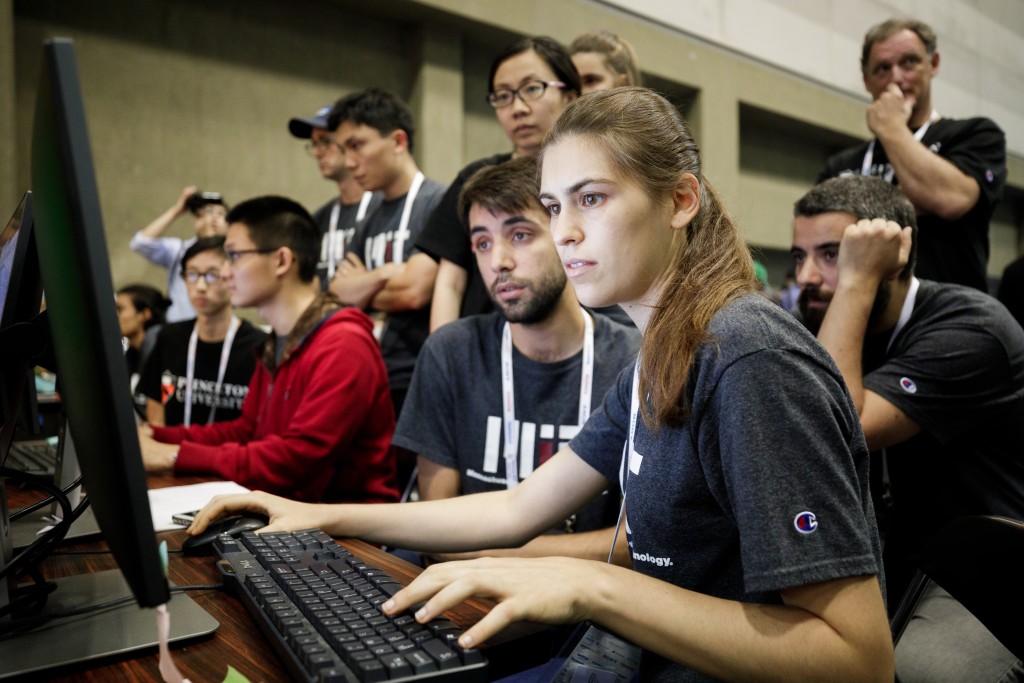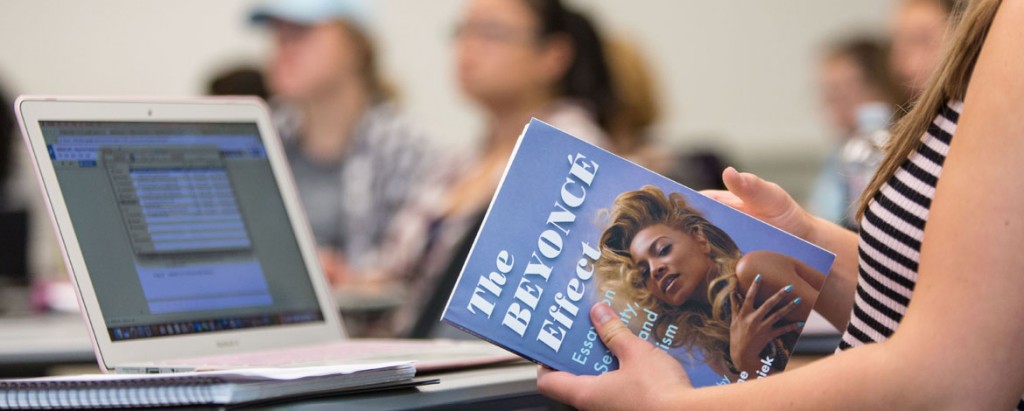Page 50 • (537 results in 0.103 seconds)
-

interests,” says Peterson. “For students who show real academic promise and an interest in advanced training in Economics, we steer them toward acquiring the mathematics they will need to be successful in a graduate economics program,” adds Peterson. “For those interested in law school, we encourage our students to work closely with the pre-law advisor and to take a wide variety of applied courses in economics, philosophy, history, and politics. The wide exposure to theory and application in our courses
-

disciplines, including mathematics, electrical engineering, acoustics, statistics, psychology, philosophy, business—even historical studies examining the impact of technology. (Photo by Jordan Stead / Amazon) It is tremendously exciting to think about a world shaped by the creative interaction of these AI disciplines and technologies. For a look at what some university students are already doing in Alexa research, browse through the 2017 Alexa Prize Proceedings for a tour of innovation and creativity
-

their university experiences. After initially enrolling at PLU as a mathematics major, Etzell had a change of heart during his first year. “Within a couple of months I realized that I was only good at math — I wasn’t truly passionate about (it),” he said. “But I didn’t figure that out on my own. Professors at PLU, friends and academic advisors really kind of dug deeper with me. … At PLU we really focus on vocation, and so now I’m working more on finding my vocation.” Read Previous A summer
-

medicine balls to demonstrate how spacecraft propulsion works. (Photo by Kari Plog/PLU) How to Build a StarshipSpoiler alert: “How to Build a Starship” is a course that’s not really about building a starship. This yearlong course at Pacific Lutheran University engages students in a thought experiment on how to build and live on a starship for a journey to Proximus Centauri — our star’s closest neighbor. The fall section of this course will be taught by Daniel Heath, associate professor of mathematics
-
schools, divisions and departments. CLEP general examinations are given elective credit only. CLEP examinations are subject to recommendations by the Educational Policies Committee and approval by the faculty Official CLEP transcripts must be submitted for evaluation of credit. The University does not grant credit for college-level general equivalency diploma (GED) tests. Credit Restrictions Credit is not allowed for a mathematics or a world language course listed as a prerequisite if taken after a
-

apply to PLU When you're ready, we're here. Apply now and fulfill your potential! Get Started Related Programs: Biology Data Science Earth Science Environmental Studies Mathematics Physics Pre-Health Sciences PLU Chemistry @plu.natsci Patience and self-discipline have definitely been some of the greatest life skills I've learned so far being a chemistry major. Things don't always go the way you want to but there's always something to learn from that. It's impossible to outright fail in the lab
-
of Chemistry per se. The example was set by Professor Ramstad, who came to Pacific Lutheran College in 1925 as vice president, dean of men, purchasing agent, coach and founder of football and women’s basketball teams. In addition, he taught mathematics, science, religion and Norwegian. Besides holding administrative offices on occasion, current chemistry faculty have been members of virtually all major standing and ad hoc committees. From the initial design process for the Integrated Studies
-
All Courses AICE 276 : Part-Time Internship A supervised educational experience in a work setting on
-
, and Mathematics (NS) Students will understand and apply basic concepts from a particular discipline of the natural sciences. Students will identify and explain organizing models of a discipline. Students will identify social and ethical issues pertaining to a discipline. Science and Scientific Method (SM) Students will use the scientific method to explore the natural world. Students will identify and assess hypotheses or meaningful questions based on their study of the natural world. Students
-
Engineering (ENGR) & Physics (PHYS) Courses ENGR 131: Introduction to Engineering An introduction to the engineering profession and development of basic skills important to the profession; including, problem solving, engineering design, graphics, use of computers, computer programming, engineering economics, and ethics in engineering. Prerequisite: completion of college-preparatory mathematics. (2) ENGR 240: Engineering Statics Engineering statics using vector algebra; equilibrium of rigid
Do you have any feedback for us? If so, feel free to use our Feedback Form.


